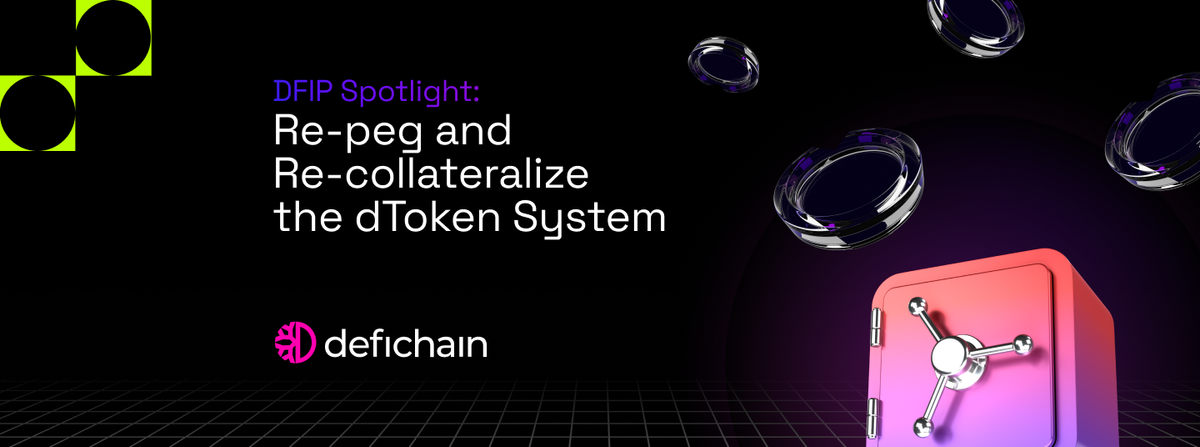The dToken system is a cornerstone of the DeFiChain ecosystem, yet recent issues have made it increasingly difficult to use it effectively, largely due to some decisions in the past that have proven less than optimal.
A DeFiChain Improvement Proposal (DFIP) has been approved lately that is poised to address these challenges head-on, focusing on the re-pegging and re-collateralizing of the dToken system.
This proposal, slated for implementation in the upcoming September hard fork, offers a structured, deterministic approach to re-pegging DUSD to $1, rewarding loyal supporters, and ensuring a robust and fair system for all users.
The Core Issue
At the heart of the issue is DUSD, DeFiChain’s semi-algorithmic stablecoin, which has faced challenges in maintaining its peg to the US dollar. The current methods to stabilize DUSD have relied heavily on market participant behavior, making the peg too probabilistic. This reliance on more or less unpredictable market actions has proven problematic, leading to a system where the peg’s stability is not guaranteed.
Moreover, the existing measures, such as dynamic interest rates and fees, have not been effective in overcoming the massive liquidity of algorithmic DUSD currently in circulation. The result is a system that, despite the best intentions, struggles to maintain the necessary collateralization levels for a stable and reliable peg.
The Proposed Solution
With the approval of this DFIP, the dToken system will undergo a complete transformation. Instead of depending on the voluntary actions of market participants, the proposal introduces a new dToken system characterized by minimal initial liquidity. This initial liquidity will be credited to existing dToken-system ownership addresses, with the ultimate goal of fully refunding these holders over time. The process involves taking a snapshot of current ownership and funds, followed by a carefully structured allocation of liquidity in the new system (more on that in the initial proposal here).
To further solidify the system’s stability, the proposal outlines a plan to re-collateralize the dToken system by distributing remaining balances in 100 tranches. These tranches will be released based on specific criteria, such as the ratio of DFI market cap to the new dToken system market cap. By tying the release of liquidity to these “health metrics,” the system ensures that liquidity is only reintroduced when the system is sufficiently stable to support it.
The Broader Impact
The introduction of these measures signals a major shift for the dToken system, moving away from a reliance on unpredictable market behavior and towards a more structured, deterministic approach. This change aims to create a more consistent and reliable peg for DUSD, which is crucial for the system’s overall stability and usability.
Moreover, the proposal is designed to ensure that long-term supporters of the system are compensated, albeit under certain conditions. This approach reflects a commitment to fairness while also prioritizing the long-term health and stability of the DeFiChain ecosystem.
The restructured dToken system represents a fresh start, one that seeks to avoid the mistakes of the past. By focusing on deterministic measures and ensuring that liquidity is only released when the system is in a healthy state, DeFiChain is setting the stage for sustainable growth and resilience.
What’s Next?
The upcoming implementation of this DFIP is set to be a critical moment for DeFiChain. If the changes are successfully integrated into next month’s hard fork, it could mark a turning point for the entire ecosystem. The strategy of tying liquidity release to specific, measurable health metrics is an innovative approach that could finally deliver the stability that has been elusive in the past.
To ensure a smooth implementation, the DeFiChain Labs Engineering team will collaborate closely with core community members, working hand in hand to see this proposal through to completion. This cooperative effort underscores the importance of community involvement in the evolution of DeFiChain and sets a precedent for future developments.



